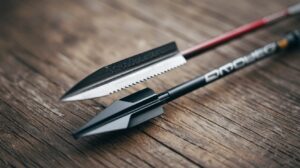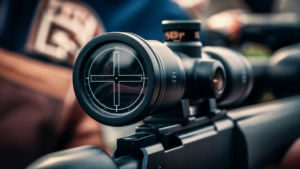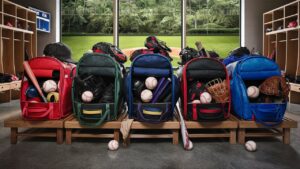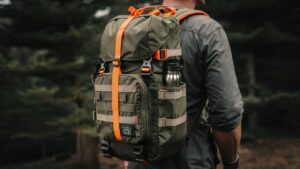Fishing trips can be exciting and relaxing adventures. Packing the right gear makes all the difference.
When heading out on a fishing trip, having the right luggage is essential. The right bag helps organize your gear and keeps everything safe. From rods and reels to tackle boxes and personal items, packing smartly ensures you have everything you need.
Whether you are a seasoned angler or a beginner, knowing what to pack and how to pack it can save you time and stress. In this blog post, we will share practical fishing luggage tips to help you prepare for your next fishing adventure. With these tips, you can focus on enjoying your time by the water instead of worrying about missing gear.
Choosing The Right Fishing Bag
Choosing the right fishing bag is essential for an enjoyable fishing trip. The right bag keeps your gear organized and protected. It also ensures you have easy access to everything you need.
Types Of Fishing Bags
Fishing bags come in various types. Each has its own advantages.
Backpacks are great for shore fishing. They keep your hands free. You can carry them over long distances.
Tackle bags are designed to hold tackle boxes. They are perfect for boat fishing. They can be easily stored and accessed.
Sling bags are compact. They allow quick access to gear. They are good for short fishing trips.
Features To Look For
Look for waterproof material. This protects your gear from water damage. It is essential for any fishing trip.
Check for multiple compartments. They help keep your gear organized. You can quickly find what you need.
Consider padded straps. They provide comfort during long trips. Your shoulders will thank you.
Ensure the bag has a sturdy base. This prevents it from tipping over. Your gear stays safe and secure.
Organizing Your Fishing Gear
Organizing your fishing gear can make your trips more enjoyable and successful. Keeping your equipment in order saves time and ensures you have everything you need. Let’s explore some tips for organizing your fishing gear.
Tackle Box Essentials
A well-stocked tackle box is crucial. Ensure you have the basics: lures, sinkers, bobbers, and swivels. Arrange them by type. This makes it easier to find what you need quickly. Use small compartments to keep items separate and avoid tangling. Include a small knife and pliers. These tools come in handy for various tasks.
Line And Hooks Storage
Store your fishing lines and hooks properly. Use spools to keep lines tangle-free. Label each spool with the line type and strength. Hooks should be sorted by size and type. Use small containers or hook organizers. This prevents them from getting lost or causing injuries. Keep your hooks sharp and rust-free for better performance.
Packing Rods And Reels
Packing fishing rods and reels can be tricky. Proper packing ensures your gear stays safe. Let’s explore some tips to protect your valuable equipment. We’ll focus on protective cases and disassembling techniques.
Protective Cases
Using a protective case is essential. These cases shield your rods from damage. Hard cases offer the best protection. They are durable and sturdy. Soft cases, while lighter, offer less protection. Choose a case based on your travel needs. Look for a case with padding. Padding absorbs shocks during transit. Some cases have extra compartments. These compartments store small items. This helps keep everything organized.
Disassembling Techniques
Disassembling your rods can save space. It also prevents breakage. Start by removing the reel. Store the reel separately in its pouch. Next, break down the rod into sections. Clean each section carefully. This removes dirt and debris. Wrap each section in a soft cloth. This adds an extra layer of protection. Place the wrapped sections in your case. Make sure they fit snugly. This prevents movement during travel.
Clothing And Footwear
Fishing trips require the right clothing and footwear to ensure comfort and protection. Proper attire can make your fishing experience more enjoyable. Here are some tips to help you choose the best clothing and footwear for your fishing adventure.
Weather-appropriate Attire
Always check the weather forecast before packing. Choose clothing that suits the expected weather conditions. For warm weather, pack lightweight, breathable fabrics. Items like cotton shirts and shorts will keep you cool. In cold weather, opt for layers. Wear thermal shirts, pants, and a waterproof jacket.
| Weather | Recommended Clothing |
|---|---|
| Warm | Lightweight, breathable fabrics, cotton shirts, shorts |
| Cold | Thermal shirts, thermal pants, waterproof jacket |
Waterproof Footwear
Your feet will likely get wet while fishing. Wear waterproof footwear to keep your feet dry. Rubber boots are a great choice. They provide good traction and protect against water. Another option is waterproof shoes with thick soles. They offer comfort and protection.
- Check the weather forecast.
- Pack lightweight clothes for warm weather.
- Layer up for cold weather with thermals and a jacket.
- Wear waterproof footwear to keep feet dry.
- Choose rubber boots or waterproof shoes with thick soles.
Following these tips will help you stay comfortable and enjoy your fishing trip.
Food And Hydration
Proper food and hydration are crucial for a successful fishing trip. Ensuring you have the right snacks and water can make your day more enjoyable. This section covers essential tips for portable snacks and water storage solutions.
Portable Snacks
Fishing can be an all-day event, so bringing portable snacks is essential. Choose snacks that are easy to pack and provide energy.
- Granola Bars: They are easy to carry and provide quick energy.
- Nuts and Seeds: These are rich in protein and healthy fats.
- Dried Fruits: These offer natural sugars and keep well.
- Jerky: It is a great source of protein and easy to pack.
You can use resealable bags to keep snacks fresh and organized. Avoid snacks that can melt or spoil easily.
Water Storage Solutions
Staying hydrated is vital during long fishing trips. Carrying enough water is important to avoid dehydration.
| Water Storage | Pros | Cons |
|---|---|---|
| Water Bottles | Easy to carry, reusable | Limited capacity |
| Hydration Packs | Hands-free, large capacity | Can be heavy |
| Collapsible Water Containers | Compact, lightweight | Less durable |
You can use a combination of these solutions to ensure you have enough water. Always pack more water than you think you will need.
By planning your food and hydration, you can enjoy a more comfortable and successful fishing trip.
Safety And First Aid
Fishing is an enjoyable activity, but safety should always be a priority. Being prepared for any situation can make your trip more enjoyable and stress-free. Make sure to pack the right items in your fishing luggage to handle emergencies.
Basic First Aid Kit
A basic first aid kit is essential for any fishing trip. Here are some items to include:
- Adhesive bandages
- Antiseptic wipes
- Sterile gauze pads
- Medical tape
- Scissors
- Tweezers
- Hydrocortisone cream
- Antibiotic ointment
- Pain relievers (like ibuprofen or aspirin)
These items help treat minor injuries. They are crucial for handling small cuts, scrapes, or insect bites.
Emergency Tools
Having the right emergency tools can make a big difference in critical situations. Consider packing the following:
| Tool | Purpose |
|---|---|
| Multi-tool | Handles various tasks like cutting and opening bottles. |
| Whistle | Signals for help if needed. |
| Flashlight | Provides light in dark or low-visibility conditions. |
| Waterproof matches | Useful for starting a fire. |
| Emergency blanket | Keeps you warm in cold conditions. |
These tools can be life-saving. A multi-tool is versatile and helpful in many situations. A whistle is essential for signaling for help. A flashlight ensures you have light in dark conditions. Waterproof matches help you start a fire if needed. An emergency blanket helps you stay warm.
Tech Gadgets And Tools
Tech gadgets and tools can make your fishing trip smoother and more enjoyable. They help with navigation, locating fish, and keeping your devices charged. Let’s explore some essential gadgets you should consider packing.
Gps And Fish Finders
GPS devices help you navigate unfamiliar waters with ease. They show your exact location and track your route. This ensures you never get lost. Fish finders use sonar technology to locate fish below the water’s surface. They display fish, underwater structures, and the depth of water. Together, these devices can significantly enhance your fishing experience.
Portable Chargers
Portable chargers are essential for keeping your gadgets powered throughout your trip. They ensure your GPS, fish finders, and other electronic devices stay functional. Look for chargers with multiple ports and a high capacity. This will allow you to charge several devices at once.
| Device | Function | Benefits |
|---|---|---|
| GPS | Navigation | Keeps you on track, prevents getting lost |
| Fish Finder | Locates fish | Identifies fish and underwater structures |
| Portable Charger | Power supply | Keeps all devices charged |
- Always carry extra batteries for your devices.
- Ensure your gadgets are waterproof or have protective cases.
- Keep your devices organized in a dedicated tech bag.
By packing these tech gadgets and tools, you can ensure a successful and enjoyable fishing trip. Happy fishing!
Environmental Considerations
Fishing is a beloved pastime that connects us with nature. But it is important to respect the environment while doing so. Being mindful of our impact helps preserve fishing spots for future generations. Here are some key tips to consider.
Leave No Trace Principles
One essential guideline is to follow the Leave No Trace principles. These principles help minimize human impact on natural areas. Start by planning ahead and preparing for your trip. Know the regulations of the area you are visiting.
Always pack out what you pack in. Do not leave trash or gear behind. This keeps the environment clean and safe for wildlife. Use established trails and campsites to reduce soil erosion and damage to vegetation.
Eco-friendly Gear
Choosing eco-friendly gear is another important step. Opt for biodegradable fishing lines and tackle. These break down naturally and do not harm wildlife. Invest in reusable containers and water bottles instead of single-use plastics.
Consider using non-toxic and lead-free weights. Lead can be harmful to aquatic life. Look for sustainable fishing brands that prioritize environmental responsibility. This supports companies that care about the planet.

Frequently Asked Questions
What Should I Pack For A Fishing Trip?
Pack essentials like rods, reels, tackle box, bait, and weather-appropriate clothing. Bring a first-aid kit, sunscreen, and a hat. Don’t forget snacks and water.
How To Organize Fishing Gear In Luggage?
Use tackle boxes with compartments for small items. Store rods in protective cases. Keep frequently used items accessible.
Can I Carry Fishing Gear On A Plane?
Yes, but check airline regulations. Secure rods in hard cases. Pack sharp items in checked luggage to avoid issues.
What Type Of Luggage Is Best For Fishing Trips?
Choose waterproof, durable luggage with multiple compartments. A backpack or duffel bag is ideal for easy carrying and organization.
Conclusion
Packing the right fishing luggage makes trips smoother and more enjoyable. Choose bags with ample storage and compartments. Ensure your gear is well-protected and easy to access. Always pack essentials like rods, reels, and tackle. Don’t forget safety items, such as first-aid kits and life vests.
Keep your luggage organized to save time and avoid stress. Proper preparation ensures a great fishing experience. Happy fishing!








